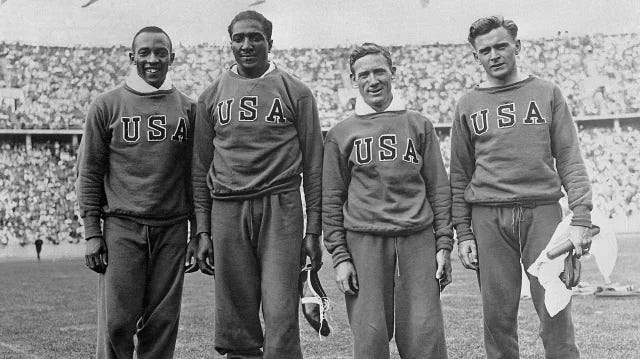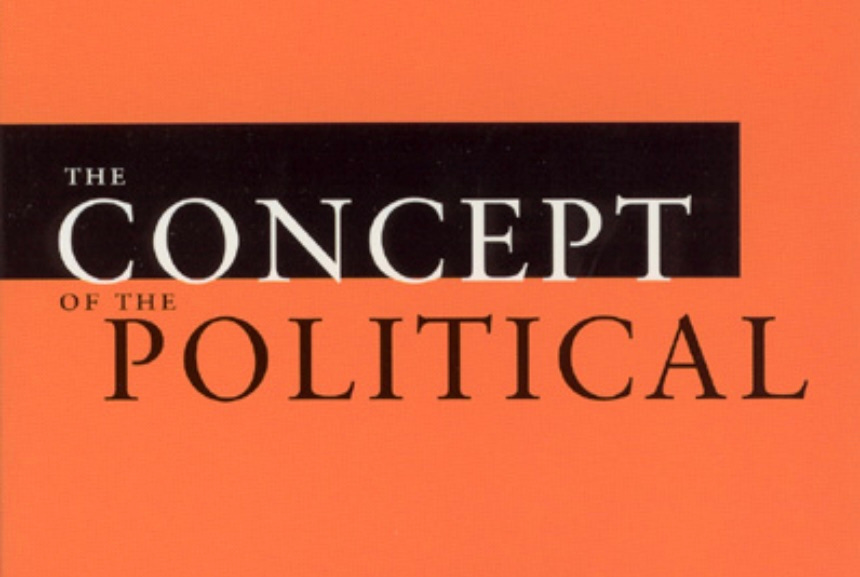Final Review of Kubrick’s Full Metal Jacket
Kubrick is now my favorite filmmaker. I don’t think there’s anyone better.
If you haven’t read my initial thoughts about the first part of the movie, read them here.
Summary, Sports, and Schmitt
To summarize, roughly the first third of the film follows the basic training of marine recruits during the Vietnam War. We see the recruits undergo an ordeal of brain smelting very much like the training used on athletes, which is a nice reminder that in some non-human species and across long-gone civilizations sports and play have always been a simulacrum of war. Moms air their grievances when sons play cops and robbers for a reason—we may laugh about it, but moms see a four-way Mexican stand-off with the neighbors’ kids, finger-guns pointed and ready to shoot, and know that in this is something real.
Play, sports, and war are nice concepts that I want to sketch some discrete models for just to add to our arsenal of ideas for later on. Ideas are like savings in a bank. You never know when your wife might need them.
Play time’s over
Where play and sports depart is at the point of a groups’ desire for a measure of the competence and abilities of its members, and its formal agreement on a competitive task that allows multiple chances at success to rule out randomness and prove decidedly the better man or party. The idea is almost identical to the idea of significance testing in science. Kids assume that any sign of competence in their friends is due to luck alone, and create a game where the number of chances that amount to success can result in a draw. If the game does not result in a draw the assumption of equal ability is soundly disproven.
Sport begins when kids want inequality, when they want distinction, or at least that’s the best model I’ve got for now. This model shares some conceptual ground with the ideas of nationalism and imperialism—people like proving the distinction of their traditions and histories and ideals; sports and war are forms of competition with this same desired outcome. Germany wanted to prove the German the better man before the Second World War and did a pretty good job in the 1936 Olympics, which I just learned recently. They swamped participating nations and won 101 medals in total. The US came in far second with only 57 medals.
This is no longer a game
Where sports and war depart is at the point Carl Schmitt calls the political antithesis, which is when a distinction is made between friends, those who share and support your way of life, and enemies, those who oppose your life or way of life. Competing sports teams operate below Schmitt’s political threshold. Opposing teams aren’t friends or enemies, they’re just actors on a stage. It’s all a simulacrum of something serious, there’s no existential risk. Anyone on the sports stage can withdraw at any time and for any reason, and everyone gets to go home after the game.
In matters of life and death there is no quitting, and the prospect of lives being given and taken in war means the role of individuals is less important than in sports. Your star general is going to die, your bravest men are going to die. Full Metal Jacket is a Straussian treatment on depersonalization, the hedge that armies raise against the reality of death and its volatile effects on individual contribution in international and civil conflict.
In the film, a combination of verbal and physical abuse, continual subordination of personal identity and personal agency to markers of shared identity and community rituals, and intense exercise are used to extract an essential resource for war: a corpus, the unified military grouping. The soft ore of the civilian personality is refined until it reveals a pliant metal, the hardened, unindividuated soldier. The ordeal of the platoon we follow is filtered through the experiences of two characters, Leonard Lawrence, an incompetent recruit nicknamed Private Pyle by his drill instructor, Gunnery Sergeant Hartman, and his more competent counterpart and the protagonist of the later story, J.T. Davis, nicknamed Private Joker.
You’re leaving boot camp
On graduating from basic training, Davis opts to be a military journalist in Vietnam, mired at the front of the conflict. This frames the rest of the narrative in an excellent juxtaposition: Davis’ goal of elevating the task of writing articles to a matter of life and death is crazy, but so is the US’ goal of risking billions of dollars, thousands of pints of tears and blood, and its reputation in history to defend liberal democratic ideals in a place no self-respecting American could find on a map. The juxtaposition clarifies some further premises Schmitt lays out in the Concept of The Political, which I really have to review later on. People talk so often about Schmitt but misuse his ideas constantly, so we’ll have to try to build a definitive resource sometime soon.
The long and short of Schmitt is that you can’t justify war unless there’s some threat to life or way of life like we mentioned before, which is the ultimate content of the political antithesis, the dichotomy that defines when any idea, ideology, or group of people poses an existential risk to another group of people. The political antithesis contrasts with other “antitheses,” or domains of human activity that are discrete and defined by their own simple dichotomy.
These other domains are the aesthetic, the moral, and the economic. The aesthetic antithesis is defined by the beautiful and the ugly. The moral by good and evil. The economic by the profitable and the unprofitable. If an assemblage of people considers no one an enemy, if its goal is simply maximizing the minimum gain and minimizing the maximum loss of an investment over the course of a market cycle, the assemblage is not political. The same way that debates about whether Ludwig Van or Franz Schubert is the superior composer are not economic.
Describing the difference between Ludwig Van and Schubert in economic terms would be insane, in the same way that a nation asking its men to kill and die for profit or to mitigate financial loss would be insane. Killing for the sake of creating beauty or to prevent the spread of ugliness, killing for the sake of moral rightness or to prevent the adoption of immorality or amorality, or for the sake of any other antithesis other than the political, would be crazy. Full Metal Jacket illustrates Schmitt’s point better than anything I’ve seen.
It’s the Vietnam War. The United States faces no threat to itself or its way of life but sends thousands of men to kill other people. This is insane. Those men are forced to find their own justifications for shooting people and getting shot, which are of course also insane. Anything that’s not a purely political justification for killing other people is going to be crazy. Kubrick takes us on a journey that shows us this, and it’s fantastic.
Kubrick meets De Sade
One other interesting idea that’s illustrated in the film is the concept of sovereignty, which might have its best exploration in the work of Marquis de Sade, the eponymous source of the word sadistic.
De Sade’s novels depict the lives of aristocrats who kill, steal, rape, and maime wantonly, because they can, because their position means that no one can hold them accountable. De Sade shows us the meaning of sovereignty, which Schmitt defines in his work Political Theology as the condition of existing in a state of exception, or the power to define a state of exception and alter the otherwise unalterable operation of morals and law. The sovereign is exempt from the rules that govern everyone else, and can suspend and change those rules at will. If an individual can act with impunity, he’s either a king or at least just like one. When we say we want to live like a king, this is what we mean.
The rich have sovereignty, permanent government bureaucrats you’ve never heard of have sovereignty, and Kubrick shows us that when a nation determines a state of exceptional circumstance by declaring war, every soldier has a tiny amount of sovereignty, too.
Soldiers in the movie are shown engaging in sexual behavior they’d probably get punished for normally, and are also shown killing innocent people for fun. Normal people can’t imagine doing either of those things, but especially not the latter. The idea that some kernel of pleasure is buried in acts of wanton cruelty is well beyond what most polite people are willing to consider. But we can imagine someone else enjoying it, we allow ourselves a vicarious understanding of psychotic men like an author who writes rapturous prose about love he’s never felt. And we’re deeply fascinated by the prospect of such people. This is the reason why there’s an enormous true crime industry and a never ending stream of Netflix serial killer docuseries.
The other side of why these stories are fascinating is that serial killers behave like sovereigns while being completely normal people, subject to the titanic weight of the American legal system and the white-hot scorn the American people have for morally unambiguous infringements of its civil contract—the unwritten, superordinate law to do right by others, with all its subordinate clauses, like: “Mind your business.” It’s interesting to see rare individuals crazy enough to risk taking on this much trouble.
Democracy is a contract. Sometimes crazy people break that contract. And an interesting feature of this fact is that these occasional violations allow members of liberal democratic systems to experience something that’s been abolished around the world—a return of the aristos. Sensational stories of serial killers with 300 odd bodies to their name cause the public to enter into a kind of inverted sovereignty, the rule by mob. Through consensus pressure on media, and media influence on court proceedings (thinking about the wild O.J. case), the public gets a small taste of the sovereign ability to pronounce sentences of life and death.
But none of us average people are immune to the mob or the media or the courts ourselves, we aren’t really sovereigns. That’s the flip side of liberal democracy. Sovereignty is a total illusion. The soldiers in Vietnam—they are sovereigns. They are cruel and vicious princes, and there’s nothing anyone can do about it.
Sovereignty is action
En route to an assignment somewhere in Vietnam, Private Joker, now a sergeant, sits in a military helicopter flying over rice fields. The man operating the turret near the cockpit expends hundreds of rounds of ammo on fleeing men and women in the fields below. All the while, Joker looks around at his co-journalist, Rafterman, who tries not to puke at the scene.
The gunner stops shooting to make a joke: “Anyone who runs is a VC [Vietcong], anyone who stands still . . . is a well-disciplined VC.”
He then tells Joker and Rafterman that they should definitely do a story about him at some point. Joker asks why they should do that, in a way that expresses the lightest, most delicate disapproval anyone has ever mustered. It was like if an ant censured me for stepping on him with my air forces. I wouldn’t even know it. The ant is powerless to reprimand me, to hold me accountable to ant jurisprudence or ant civil morality. In the same way, Joker was powerless to reprimand the guy; he was dealing with a sovereign. War makes thousands of vicious kings.
I only learned today that events much worse than what Kubrick depicts happened in Vietnam, like the My Lai massacre. A platoon of US soldiers did things that I really can’t mention to a village of men, women, and children. 22 soldiers were charged, but only a single platoon leader was convicted. The movie says often that war is hell, and war crimes are probably a big reason for that being the case.
Kubrick is peerless
Kubrick understood that the best art gives its audience something to mull over, which is why to this day he’s unbeatable. Or at least he inadvertently stumbled on this principle by almost always adapting novels. Novels center themselves around the thoughts and goals of regular people, how and if these things change in response to shifting circumstances, and the consequences that follow from this decision. This is the stuff that makes up the interests of most readers in everyday life. In our beds, in the shower, while driving, while on our walks, we’re always thinking about what other people do and why they do it. I don’t think there’s anything else we spend more time thinking about. Novels feed this social habit by giving us the whole lives of characters that remind us of the characters we know.
In Kubrick’s work we find the joy of contemplation in the heaps of Straussian content he bids us chew on. He smashes the ascetics and their heads full of peace and tranquility and quiet, he gives them a good kick in the maw. Kubrick is a champion of the talkers, the bloggers, the posters, the idea-wranglers and detanglers. There are aqueducts carrying streams of secret thought buried beneath the mountains of violence and breasts and music that he builds on screen. He wants us to take a dive and see what’s beneath the ripples. Private Joker and all the rest of those lunatics in the movie are fantastic vehicles for what amounts to a subtle discourse on the Vietnam War.
You have to watch the film if you haven’t already. This is what art is supposed to be. Bad art explains itself overtly without the charm or plausible deniability of embedding itself in some unfolding circumstance. Or it asks us to attribute meaning to something obviously meaningless and wants us pretend that we’re a divine creature free from the gut judgments of mortals. It wants us to pretend that we can discern the meaning of life in a pile of bricks or some other weird modern art garbage. Kubrick doesn’t do this because he’s a nice person.
Watch this movie, comment once you’ve seen it or leave a comment if you’ve seen it already.













